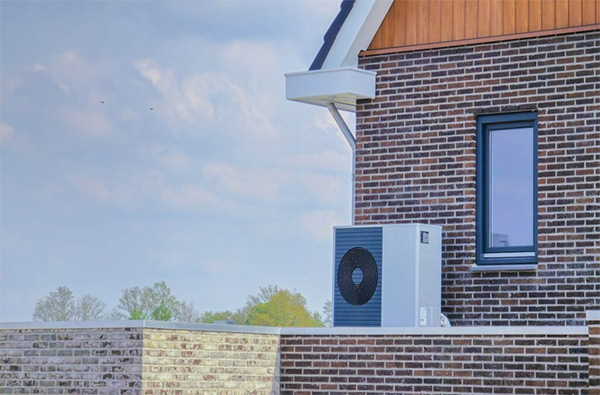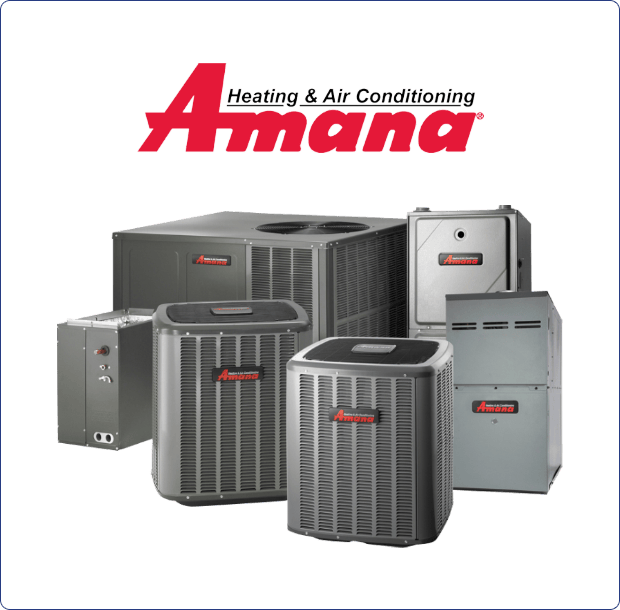Heat pumps are a versatile, energy-efficient, and cost-effective option for heating and cooling residential, light commercial, and new construction properties. By leveraging the outside air’s temperature, heat pumps efficiently transfer heat into or out of your space, depending on the season. Choosing the right heat pump system involves understanding the various types, sizing, efficiency ratings, and installation considerations. Making the right choice ensures optimal comfort and lasting performance while reducing energy bills and environmental impact.

Heat pumps not only offer effective heating and cooling capabilities but also contribute to improved indoor air quality and humidity control. The wide variety of heat pump systems in the market ensures that there’s an option for every application, from high-capacity systems for extensive commercial spaces to compact options for smaller residential properties.
Selecting an appropriate heat pump system not only guarantees comfort and performance but also contributes to a greener and more budget-friendly lifestyle. Rely on our experienced professionals to assist you with unmatched expertise, ensuring a satisfying experience from the selection to the installation and maintenance of your ideal heat pump system.
Stay tuned as we dive into the various heat pump types, provide insights on sizing and efficiency ratings, and discuss installation considerations, allowing you to make the best choice for your home or commercial space. Let our skilled professionals guide you through making the right decision for your heating and cooling needs.
Heat Pump Types – Finding the Perfect Match for Your Property
A heat pump’s primary function is to transfer heat from the outside air into or out of your property, providing both heating and cooling with energy efficiency. There are three main types of heat pumps available, each with specific benefits and best-suited applications:
- Air-Source Heat Pumps: The most common type, air-source heat pumps, transfer heat between your property’s indoors and exterior air. These systems are versatile, cost-effective, and suitable for various climates, providing efficient heating and cooling for most property types.
- Ground-Source (Geothermal) Heat Pumps: Ground-source heat pumps rely on the earth’s constant temperature for heating and cooling properties, using underground loops of pipes filled with water or refrigerant. Geothermal heat pumps offer higher energy efficiency levels and lower operating costs but require a more extensive installation process.
- Absorption Heat Pumps: Also known as gas-fired heat pumps, absorption heat pumps utilize natural gas, propane, or even solar power instead of electricity. These systems are ideal for properties with limited electrical capacity and those aiming to reduce their carbon footprint.
Our professionals can help you determine which heat pump type is best suited for your property, considering factors like climate conditions and available installation space.
The Importance of Proper Heat Pump Sizing
Heat pump sizing is critical in ensuring optimal system performance, comfort levels, and energy efficiency. Improperly sized heat pumps often lead to short cycling, uneven temperatures, and higher energy expenses. Follow these sizing considerations for the perfect fit:
- Heating and Cooling Load Calculation: A thorough load calculation is the starting point for determining the appropriate heat pump size. This process takes into account your property’s size, layout, insulation, and other factors that affect heating and cooling requirements.
- System Capacity: Heat pump capacity is measured in British Thermal Units (BTUs). Selecting a heat pump with the right capacity for your property will ensure efficient operation and reliable indoor comfort.
- Professional Assessment: Our skilled technicians can conduct a detailed evaluation of your property’s heating and cooling needs, recommending the ideal heat pump size for optimal performance and efficiency.
Understanding Heat Pump Efficiency Ratings
Heat pump efficiency ratings help identify the most energy-efficient systems, ensuring lower operating costs and reduced environmental impact. Two significant efficiency metrics for heat pumps are:
- Seasonal Energy Efficiency Ratio (SEER): Measuring the cooling efficiency, SEER ratings determine how much cooling a heat pump provides for the amount of energy it uses during a typical cooling season. Higher SEER ratings signify more energy-efficient systems.
- Heating Seasonal Performance Factor (HSPF): A measurement of heating efficiency, HSPF ratings evaluate the amount of heat generated in relation to the energy consumed throughout the heating season. As with SEER ratings, a higher HSPF signifies a more energy-efficient heat pump system.
When selecting a heat pump, look for models with higher efficiency ratings, as they offer long-term energy savings, optimal performance, and a reduced carbon footprint.
Heat Pump Installation Considerations
Proper heat pump installation is vital for ensuring system longevity, optimal performance, and energy efficiency. Here are some critical factors to consider when installing a heat pump system:
- Professional Installation: Enlist the help of our experienced technicians for professional installation, adhering to industry standards and ensuring seamless system performance.
- Indoor and Outdoor Unit Placement: The placement of both indoor and outdoor units significantly impacts system efficiency and performance—consider factors like ease of access, noise concerns, and aesthetics when deciding on unit locations.
- Ductwork: If using a ducted heat pump system, ensure your ductwork is clean, well-sealed, and properly insulated. Efficient ductwork supports better airflow, increased system efficiency, and improved indoor air quality.
- Maintenance Accessibility: Install your heat pump system in a location that allows easy access for routine maintenance, cleaning, and repairs to prolong the system’s lifespan.
Conclusion
Selecting the ideal heat pump system for your residential, light commercial, or new construction property can be a daunting task—but our professionals at Campbell Air Conditioning are dedicated to helping you make an informed decision. By understanding the different heat pump types, sizing methodology, efficiency ratings, and installation considerations, you can ensure a comfortable, energy-efficient, and cost-effective heating and cooling solution tailored to your specific requirements.
Trust our skilled professionals at Campbell Air Conditioning to provide expert guidance and industry know-how, from the selection process to the heat pump installation in Moody and ongoing maintenance of your heat pump system. Contact us today to explore the best heat pump options for your property and start enjoying the benefits of a well-optimized heating and cooling system.





